
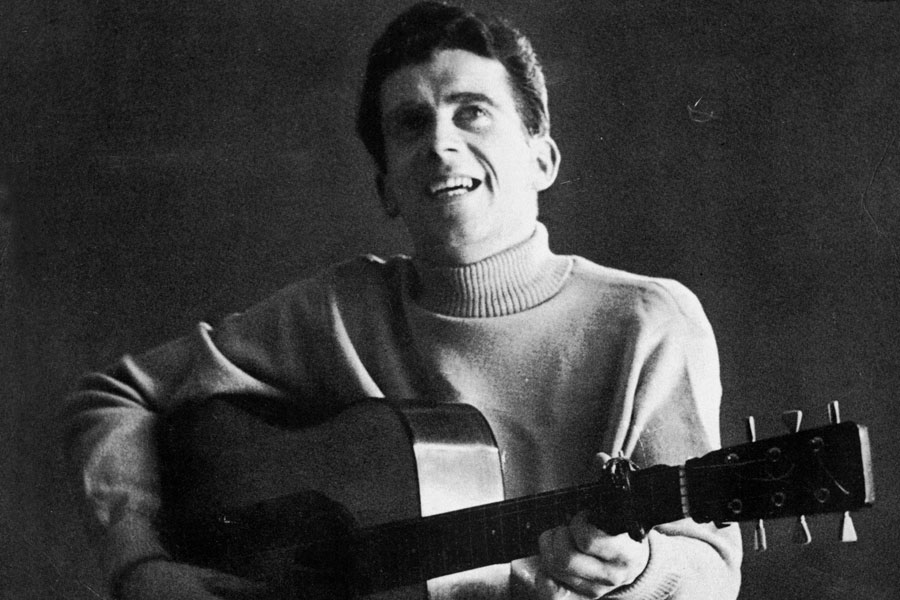
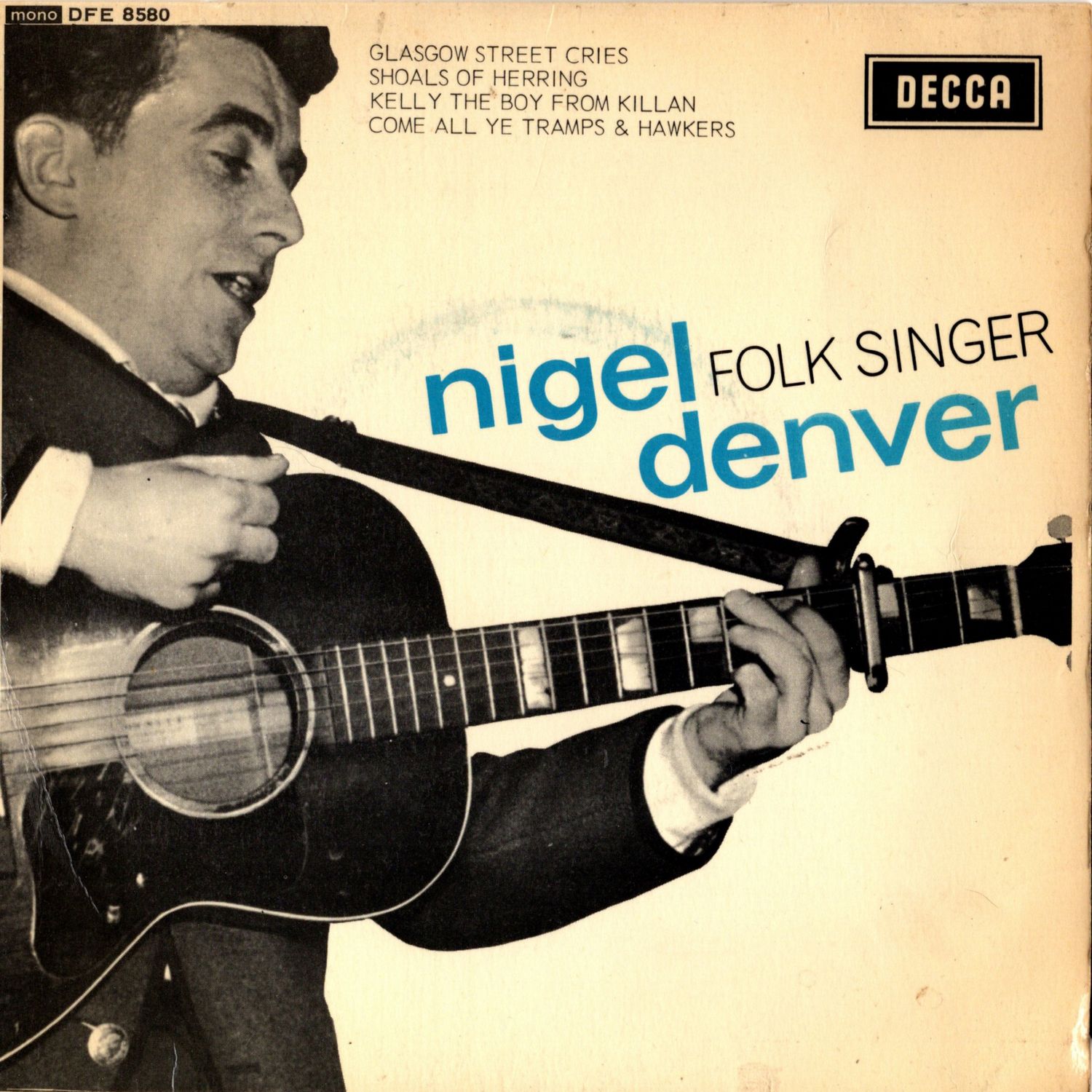 |
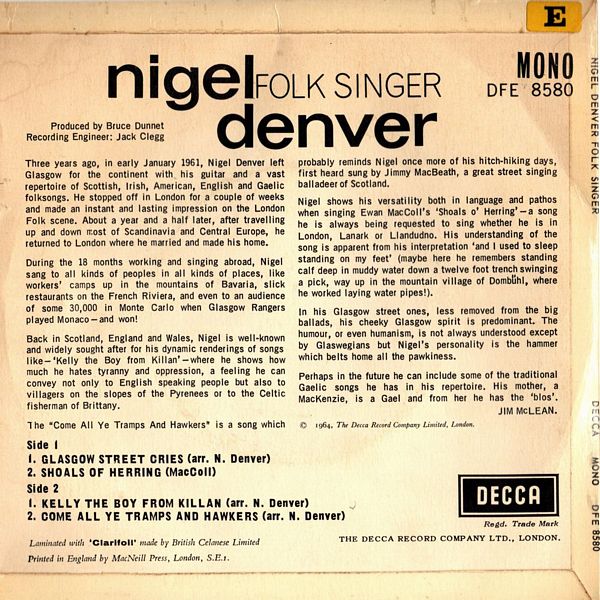
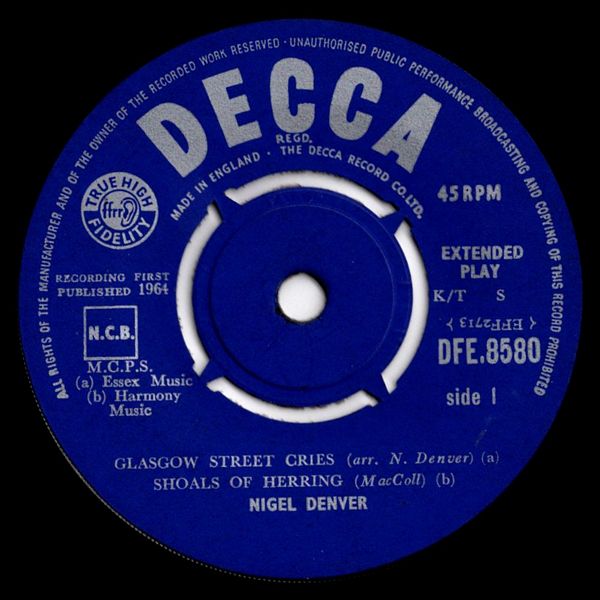
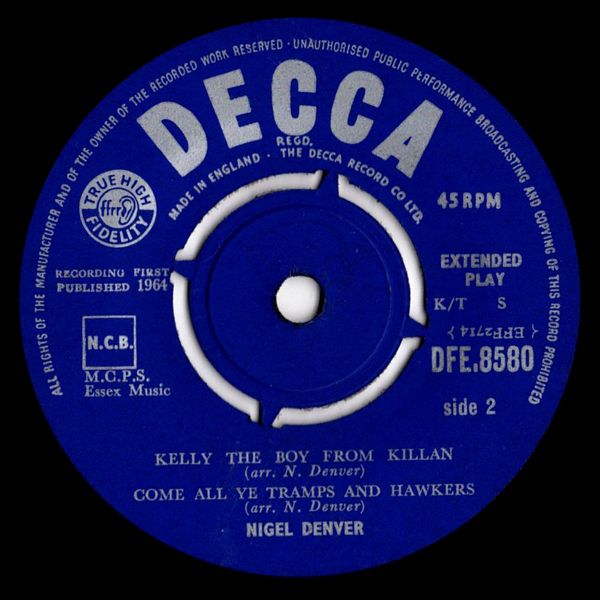 |
Sleeve Notes
Three years ago, in early January 1961, Nigel Denver left Glasgow for the continent with his guitar and a vast repertoire of Scottish, Irish, American, English and Gaelic folksongs. He stopped off in London for a couple of weeks and made an instant and lasting impression on the London Folk scene. About a year and a half later, after travelling up and down most of Scandinavia and Central Europe, he returned to London where he married and made his home.
During the 18 months working and singing abroad, Nigel sang to all kinds of peoples in all kinds of places, like workers' camps up in the mountains of Bavaria, slick restaurants on the French Riviera, and even to an audience of some 30,000 in Monte Carlo when Glasgow Rangers played Monaco-and won!
Back in Scotland, England and Wales, Nigel is well-known and widely sought after for his dynamic renderings of songs like — "Kelly the Boy from Killan" — where he shows how much he hates tyranny and oppression, a feeling he can convey not only to English speaking people but also to villagers on the slopes of the Pyrenees or to the Celtic fisherman of Brittany.
The "Come All Ye Tramps And Hawkers" is a song which probably reminds Nigel once more of his hitch-hiking days, first heard sung by Jimmy MacBeath, a great street singing balladeer of Scotland.
Nigel shows his versatility both in language and pathos when singing Ewan MacColl's "Shoals o' Herring" — a song he is always being requested to sing whether he is in London, Lanark or Llandudno. His understanding of the song is apparent from his interpretation "and I used to sleep standing on my feet" (maybe here he remembers standing calf deep in muddy water down a twelve foot trench swinging a pick, way up in the mountain village of Domb'hl, where he worked laying water pipes!).
In his Glasgow street ones, less removed from the big ballads, his cheeky Glasgow spirit is predominant. The humour, or even humanism, is not always understood except by Glaswegians but Nigel's personality is the hammer which belts home all the pawkiness. Perhaps in the future he can include some of the traditional Gaelic songs he has in his repertoire. His mother, a MacKenzie, is a Gael and from her he has the "bios".
Jim McLean